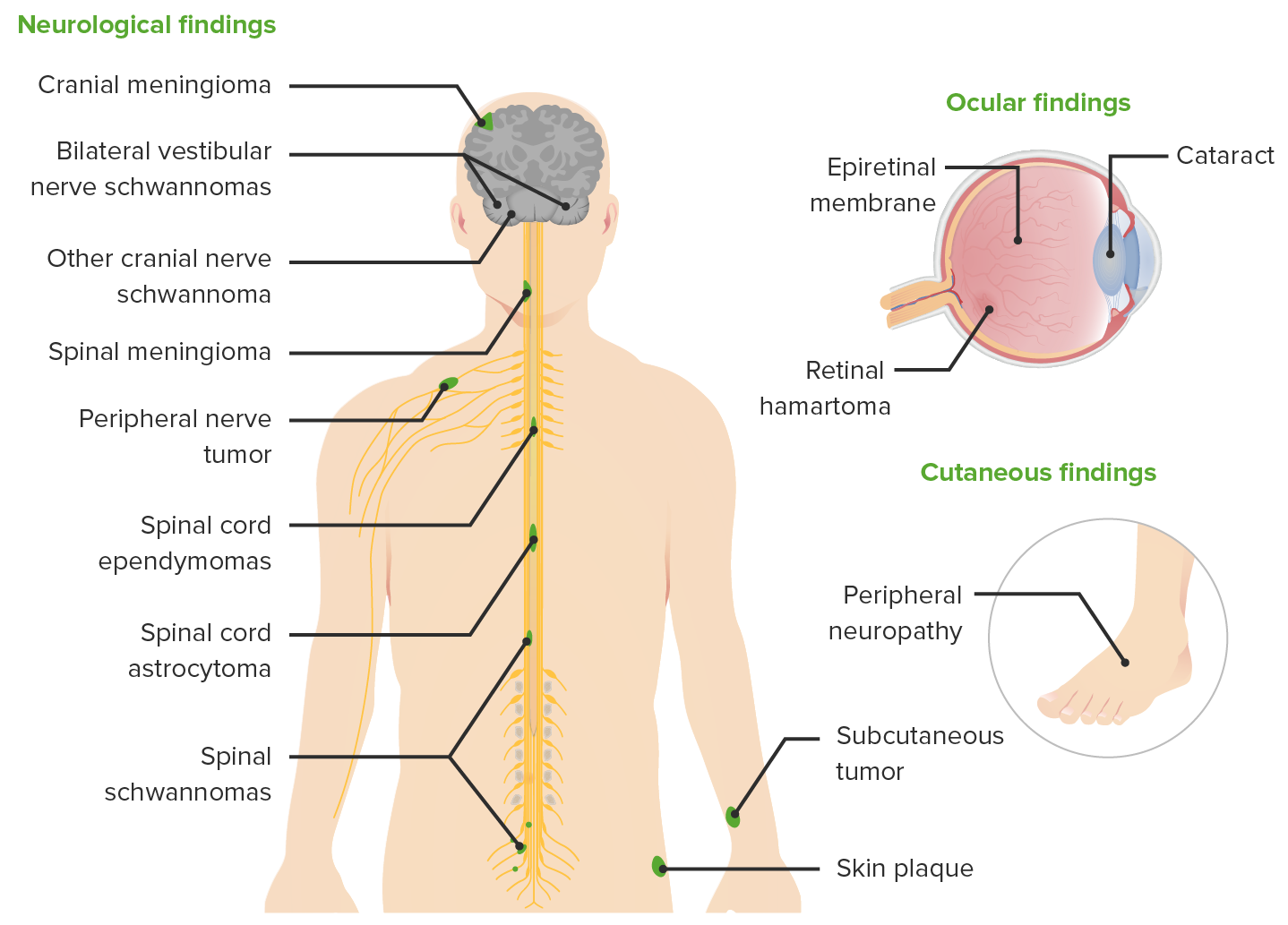Playlist
Show Playlist
Hide Playlist
Neurofibromatosis Type 2: Treatment
-
Strowd CNS Tumors Inherited Tumor Syndromes.pdf
-
Download Lecture Overview
00:01 What treatments do we have for patients with NF2? Well, like NF1, historically, the primary treatment was surgery. 00:08 If it's a tumor, take it out. 00:10 We don't like to radiate these tumors. 00:12 Patients who have a tumor suppressor syndrome and are at risk for that second hit, that acquired loss of heterozygosity that will drive tumors to grow are at increased risk of developing secondary tumors after radiation therapy. 00:26 In the last few years and decade, new medicines have been discovered to help these patients. 00:32 And one of them is a medication called Avastin or bevacizumab. 00:36 This was studied in individuals with progressive vestibular schwannomas. 00:40 So it's primarily used to treat the vestibular schwannomas. 00:44 And it has been studied at any age in both young adults, in adolescence, and in adult individuals. 00:50 It's an infusion, it's a chemotherapy type of infusion that's given every two weeks. 00:55 And it's primarily been looked at in how does it shrink tumors? And how does it improve hearing? And is it tolerable and patience? This medicine is an anti-VEGF agent. 01:05 It goes and binds up all the molecules that cause tumors to grow, new blood vessels to form, and tumors to light up with contrast, and takes that circulating VEGF away. 01:16 It is a VEGF inhibitor. And it works fantastically well. 01:20 In patients, regardless of the dose that it's given, about half of the patients see shrinkage of the tumor on imaging, and about half of patients see improvement in hearing. 01:29 And Avastin has really revolutionized how we treat patients with symptomatic progressive vestibular schwannomas in the setting of NF2.
About the Lecture
The lecture Neurofibromatosis Type 2: Treatment by Roy Strowd, MD is from the course CNS Tumors.
Included Quiz Questions
What is the mechanism of action of bevacizumab?
- Anti-VEGF monoclonal antibody
- Anti-GPIIb/llla monoclonal antibody
- Anti-ERBB2 monoclonal antibody
- Anti-CD20 monoclonal antibody
- Anti-CD3 monoclonal antibody
Radiation treatment is avoided in neurofibromatosis type 2 because it ...
- ... increases the risk of developing secondary tumors.
- ... does not cause shrinkage of the tumor.
- ... prevents further treatment by surgery.
- ... interferes with eventual chemotherapy.
- ... unnecessarily damages healthy brain tissue.
Customer reviews
5,0 of 5 stars
| 5 Stars |
|
5 |
| 4 Stars |
|
0 |
| 3 Stars |
|
0 |
| 2 Stars |
|
0 |
| 1 Star |
|
0 |




